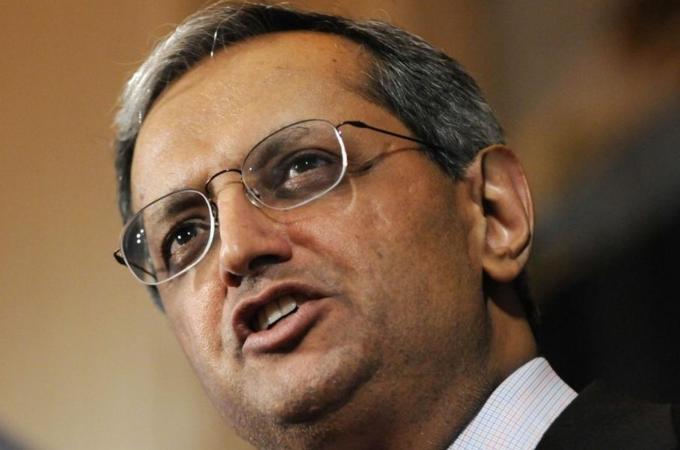Citigroup chief executive Pandit quits bank
Vikram Pandit resigns with immediate effect from third largest bank in US, in move greeted by surprise on Wall Street.

Vikram Pandit, Citigroup’s chief executive, has announced his immediate resignation, in a move which took many in Wall Street by surprise.
Pandit is being replaced by Michael Corbat, who was previously the US bank’s head of operations for Europe, the Middle East and Africa.
Keep reading
list of 4 itemsChina’s economy beats expectations, growing 5.3 percent in first quarter
Inside the pressures facing Quebec’s billion-dollar maple syrup industry
Manipur’s BJP CM inflamed conflict: Assam Rifles report on India violence
The swift change at the helm came a day after Citigroup reported third-quarter earnings that beat analyst expectations.
The New York-based bank, the third-largest US bank by assets, has lagged its two bigger rivals JPMorgan Chase and Bank of America in recovering from the 2008 Wall Street crash.
Pandit had been appointed chief executive in December 2007.
His abrupt departure has sparked speculation about the possible reasons, such as a fight over compensation, the bank’s quarterly earnings report, or the dismal share price performance under his leadership compared with other major US banks.
Also in focus was Pandit’s handling of the bank’s sale of its stake in brokerage Morgan Stanley Smith Barney, which led to a large writedown in the third quarter of 2012.
‘Turned this company around’
In a statement, Pandit said the bank has emerged as a strong institution.
“Given the progress we have made in the last few years, I have concluded that now is the right time for someone else to take the helm at Citigroup,” he said in a statement.
In an internal memo to employees, Pandit said: “After five extraordinary years, I have decided to step down as CEO of Citi… There is nothing better than our third-quarter earnings announcement to demonstrate definitively that we have turned this company around.”
He called Corbat the “right person” to succeed him, citing his 29-year record of achievement and leadership at the company.
Corbat said Citigroup’s fundamentals were solid and the bank was on the right path.
“With unprecedented economic, regulatory and political change, my top priority is to keep us focused on what our clients need, both today and tomorrow.”
Citigroup’s president and chief operating officer, John Havens, has also resigned.
The bank said that Havens had already been planning to retire at the end of the year, but in the light of Pandit’s departure had decided to leave at the same time.
Shares up
Citigroup’s shares rose 0.9 per cent to $36.99 in late-morning trade on Tuesday following the announcement of Pandit’s exit.
 |
| Pandit became Citigroup’s chief executive in 2007 [Reuters] |
The biggest US bank before the financial crisis, Citigroup had been transformed into a financial supermarket by former chief executive Sandy Weill.
But the bank suffered deeply in the financial crisis, requiring an injection of $20bn from the government and hundreds of billions of dollars in additional guarantees to stay afloat.
Pandit is well known on Wall Street for his performance at Morgan Stanley, where he worked for two decades until 2005 and became president of that bank’s investment banking unit.
He left to set up a hedge fund call Old Lane, which was bought by Citigroup in 2007 for $800m. and moved across to head up the firm’s alternative investments, later taking on the bank’s whole capital markets unit.
Under Pandit’s direction, Citigroup had recovered profitability, shedding its riskier assets and refocusing on core banking activities.
On Monday, Citigroup reported an 88 per cent drop in third-quarter earnings, to $468m, hit by heavy one-time charges, including a $4.7bn writedown in the sale of the stake in Morgan Stanley Smith Barney.